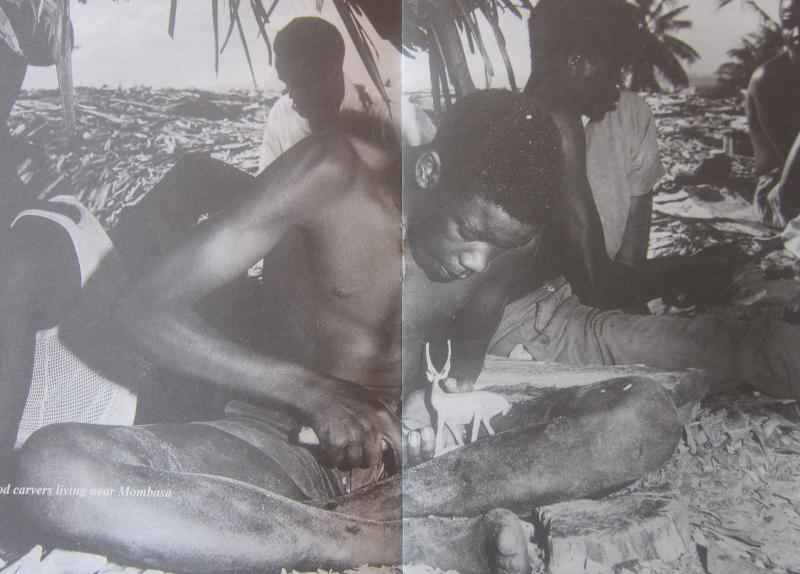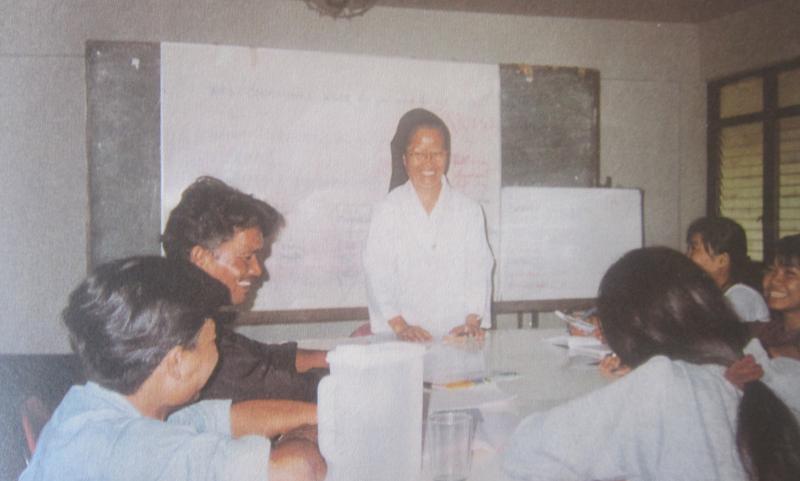January-February 1998
A Story Of Love
By Sr. Ann Rita Centeno, SSC
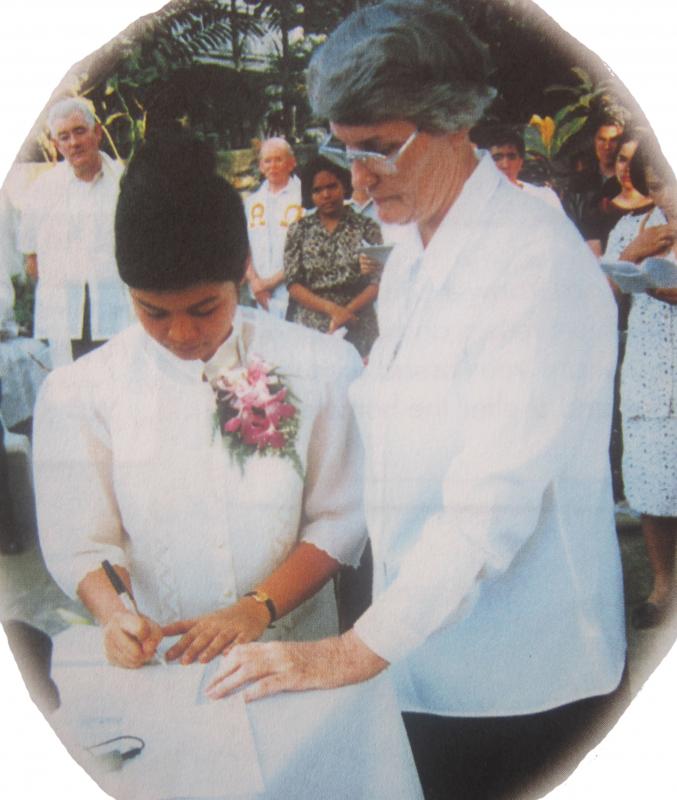 More and more competent women are emerging in pastoral ministries. Usually sisters give homilies at special liturgical occasions. Sr. Ann Rita gives the homily at the first profession as a Missionary Sister of St. Columban of he namesake, Sr. Ann C. Carbon. Some highlights from the homily appears below.
More and more competent women are emerging in pastoral ministries. Usually sisters give homilies at special liturgical occasions. Sr. Ann Rita gives the homily at the first profession as a Missionary Sister of St. Columban of he namesake, Sr. Ann C. Carbon. Some highlights from the homily appears below.
I’m very happy to see all of you this afternoon. Whether we have come from far away Cagayan de Oro City, Davao, Cebu, Ozamiz, Ireland, Pangasinan or from nearby Quezon City or San Juan. We have come with a common purpose, and that is, to be witnesses to a story of love. Aren’t vocation stories love stories? Aren’t vocation stories basically deep personal experiences of a loving God? Maybe this is a good moment to recall our own vacation stories.
We all know that this deep personal experience tarts with a call which oftentimes defies definition. It’s even hard to pinpoint what it is. Most of the time it is felt in the heart. And when the feeling persists and the heart starts to throb, we gaze at the heavens and say, “Why me Lord? Why not so and so. They’re more prayerful than I am. Mas mabait sila kaysa sa akin.”
The poster over there has Anne’s favourite Bible quote: “I have called you by name, I have honored you, I am with you. I love you.” This call is a promise of being: being for and being with. God’s BEING inviting my being to be for Him and to be with Him in the midst of the world.
As one listen intently to the call, one’s name becomes clearer.” “Ay ako pala and tinatawag, hindi siya.” In fear or plain innocence one says, “Speak Lord, your servant listens” This is crucial because the search comes to an end. God has found a willing instrument in you. A dialogue then begins. Do you remember this happening to you Anne? For you, Anne, you have discovered fairly early that to answer God’s call is to experience a mixture of joy and pain. In your case love prevailed because, once again, despite the many odds against you, you heard yourself saying, “Lord, you know everything; you know that I love you.”
To which Jesus says to you, “Follow Me.” And from that moment on life has never been the same for you.
All Roads Lead To Koronadal!
An account of Fr. Leo Distor’s Ordination
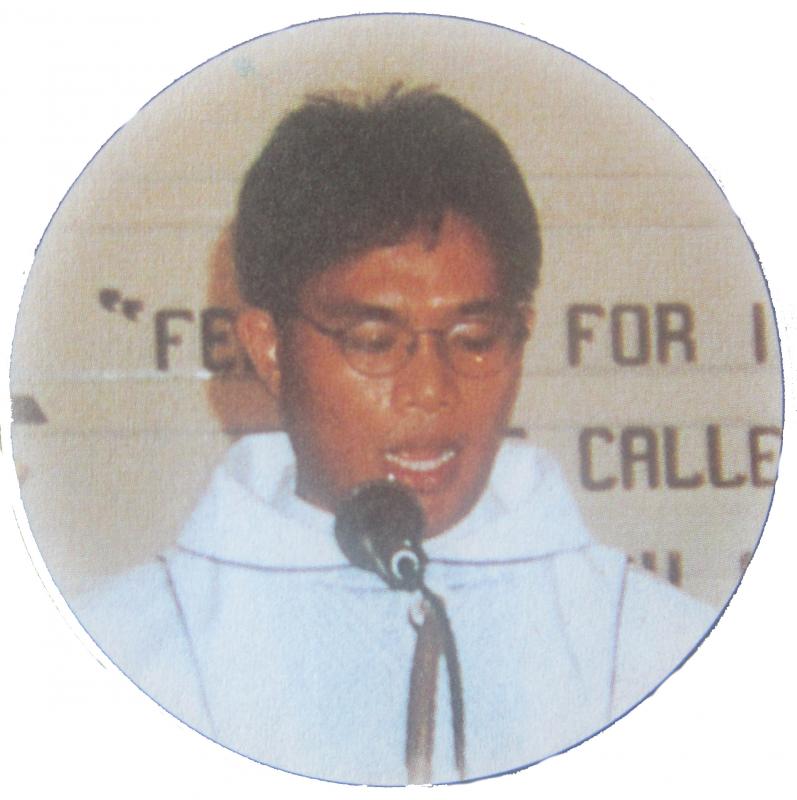
Fr. Leo Distor could be described as a late vocation, that is, he worked as a lay missionary with the T’ Boli people in Lake Cebu before he decided to become a Columban missionary Society of St. Columban student tells the story of Leo’s ordination.
That day in Koronadal was not just an ordinary day. It was the day of the very first ordination of a member of the Missionary Society of St. Columban from the Diocese of Marbel: FR. LEO DISTOR.
Koronadal, known better as Marbel, is located in the central part of Mindanao and can only be reached by land travel. It is only a town, yet it is more like a city and it is the center of South Cotabato. Most of the visitor who came from Luzon and Visayas traveled by airplane to General Santos (formerly Dadiangas) which is only about an hour‘s ride from Marbel. It was a comfortable trio for them compared with those who came from Pagadian and Ozamis. They sailed by launch to Cotabato City in Maguindanao and then rode a jeepney for almost 3 hours.
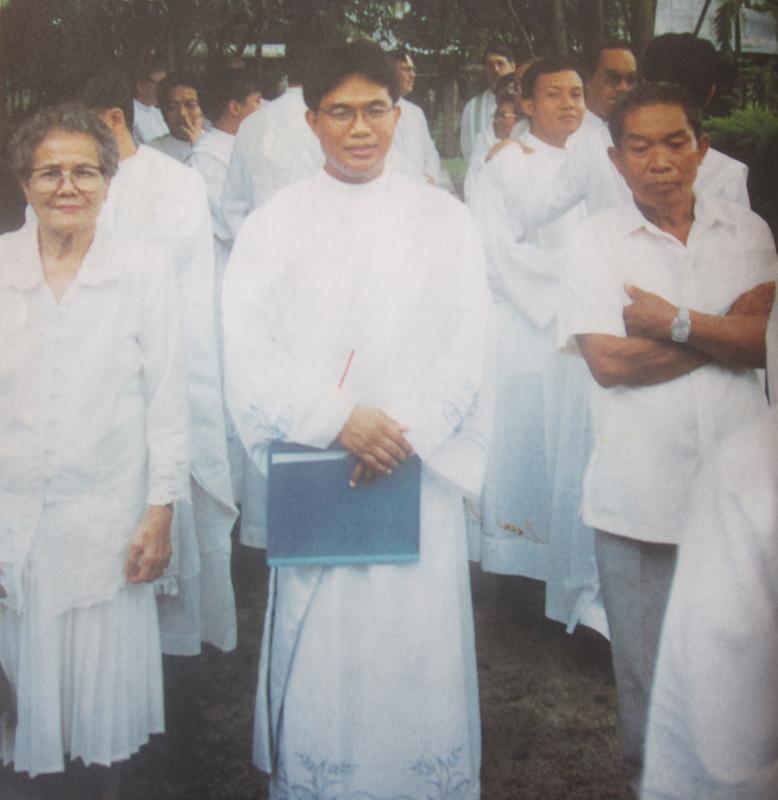
After breakfast, everyone was heading to the Church for the Ordination which started at 9:00 o’clock. The Mass was said in Ilongo (Hiligaynon), including the sermon of the Bishops. The ordination rites were in English. As the ceremony continued, more people arrived to witness this extra special even in their remote place.
Filipino and Korean Columban seminarians were also present together with two visiting Korean women who where friends of Fr. Leo (He did his Overseas Training Program in Korea.) there were the Kingdom of Tonga and four from Fiji.
At the end of the Mass, the altar area was filled up with crowds of people – especially Leo’s parents and family – to greet the newly ordained priest. And, during the meal which was held in the Seminary, a program was conducted. Close friends of Fr. Leo sang and others spoke. A group of students fro Notre Dame University of Marbel, where Fr. Leo graduated, rendered a cultural dance.
At three o’clock in the afternoon of the same day, Fr. Leo celebrated his first Mass in the same church where he had been ordained. During the offertory, a T’Boli dance was performed by T’ Boli friends of Fr. Leo from Santa Cruz Mission where he had worked with Fr. Sean McDonagh before joining the Columbans.
These tribal people symbolized the commitment of the new priest to a life of mission, with special preferential option for those like the T’ Boli on the margins of life.
“I Remember My Ordination
Some personal words from Fr. Leo Distor
The Priests Laid Their Hands on Me
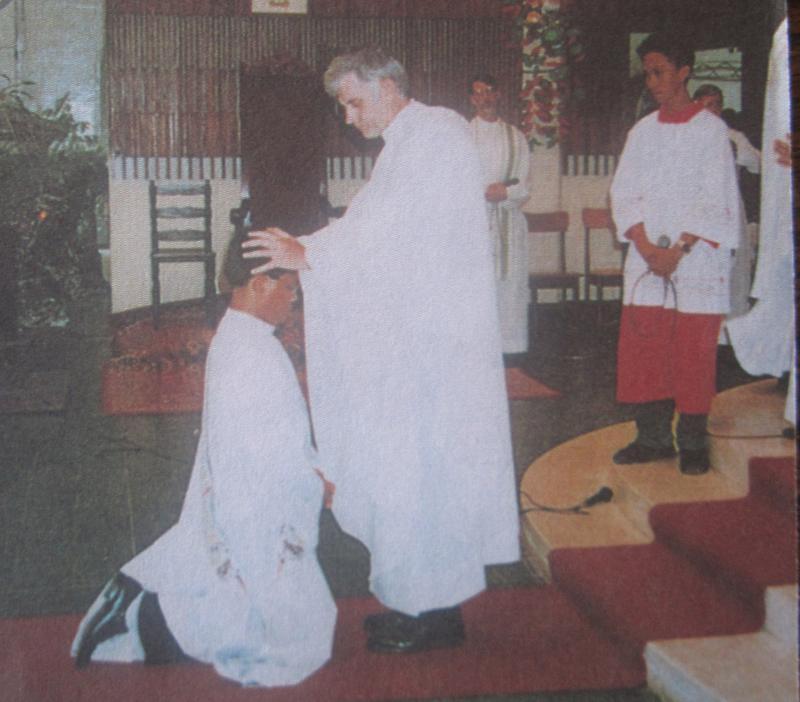
I was delighted with the presence of all the Columban priests and those who also came from a far distance and through a rough and tiring journey to be part of that celebration of my ordination. Needless to say, they really meant so much to me and my family. We are most grateful for them, I would like to mentions especially for Fr. Al Utzig, a Columban from Korea who we worked very closely with during our Overseas Training Program. I just feel that he was quite symbolic of my Korea experience especially when he handed me a bottle of their sesame oil and reminded me of the labor I have shared for that when I stayed and worked with them in the farm they’re working.
I Blessed My Parents
In that moment that I laid my hands on my father and mother, I felt so happy, grateful and blessed by God that I still have my parents to touch and lay my hands on, especially my ailing mother. I felt proud of them. They have been loving, generous and simply good formators who had put me in situations where I learned how to tackle rough and difficult times with hope and faith and taught me how to accept responsibilities in my young age. In a family where I am the only son and in a culture which says that the only son is the sole hope to make the name stronger, my parents could have encouraged me to marry and bear children instead of priesthood but they listened, understood and supported me. I feel so much love for them and I wished that in laying my hands on them at that moment, they could get every blessing could bring – healing, joy, and love.
The thing I remember with gratefulness was the all out and remarkable support that our parish has extended with its parish priest and lay leaders. We were made to feel we really belong despite my not having much contact with them or with the parish. The series of organizational meeting we had making things, places and people available for the ordination were just great. The really made that event memorable.
Angola Diary
By Fr. Efren de Guzman, SVD
 After I got back to Angola from my medical check-up in the Philippines I was expecting to see better changes in the life of the people here in Luanda. But, to my dismay and deep sadness, the situation here is getting worse everyday. The poverty of the people is becoming more insupportable, the rate of criminality is rising, the number of the unemployed is growing by leaps and bounds. The general picture of Angola is a country beset by all forms of human affliction and torn apart by conflict and division.
After I got back to Angola from my medical check-up in the Philippines I was expecting to see better changes in the life of the people here in Luanda. But, to my dismay and deep sadness, the situation here is getting worse everyday. The poverty of the people is becoming more insupportable, the rate of criminality is rising, the number of the unemployed is growing by leaps and bounds. The general picture of Angola is a country beset by all forms of human affliction and torn apart by conflict and division.
Like beasts
Here in the city of Luanda, children are dying en masse without getting the benefit of minimal medical attention. Uncollected garbage clutters up the streets of the capital. Gun-totting members of the Armed forces and the police prowl the city thoroughfares like beast, desperately trying to augment their meager earnings through corruption and intimidation. The daily income of an ordinary man is eight million Kwanzas, equivalent to eight bottles of beer. Eight million Kwanzas cannot ever buy a can of NIDO milk in the only viable supermarket in the city. (Kwanzas is the peso of Namibia. The exchange rat of Kwanza in dollar is 1:1, 500, 000).
In the face of this vast scene of suffering and sorrow, I could only sight with a sense of helplessness. You may note that what I’m telling you is all bad news. Yes, but I have also some good news to tell – things that pertain to my pastoral activities here.
Bitten by a scorpion
I visited the homes of my old friends in one of the interior parts of Angola. While walking around in one of the villages where I worked before, I got bitten by a scorpion. It was so painful that I had to go home at once, but, with God’s help, my antibodies resisted and subdued the sting of the poison, and I recovered almost immediately.
It is a joy for me to know who my real friends are. We know them in times of misery and in moments of crisis.
Malaria Again
I received a letter here in Luanda from one of my friends who took care to write and give me some encouragement and help for our scholarships program in the Philippines. It was a very reassuring letter and I felt good. More new arrived—one of our orphans here was tortured and killed by the bandits. Hearing all the news I felt so bad that I threw up and had to stay in bed. Later on I found out that I had contracted malaria again.
Liberating Death
In one of my moments of prayer, I had some sort of a dream in which I saw some familiar faces of my friends who are lepers and amputees, but are now dead, in that sort of vision, I saw them so beautiful, so pure and so bright like angels. I believe that it was God’s way of telling that life after death is such an ineffable experience and that the reality of death is just a passing through from our earthly existence to a higher and more fulfilling union with God; that death is a liberation in which we can have the joy of seeing God face to face. For my friends who have gone ahead of us, death in Christ is a real joy and real happiness and liberation.
Pinoys in Prison
Two days ago, we went to a military prison camp in Viana (20 km. from the capital, Luanda) and brought some food to the prisoners. We have two Filipinos, imprisoned there because of a frame up. They caught a thief, but, unfortunately this thief has a sister who is a judge working in the Judiciary. So, as bad luck would have it, our fellow brothers found themselves in prison, while the thief is now free. With the help of our friends Etienne Albert Bretchet, a Swiss who is a director of SERVE EQUIP, we are hoping to get our brothers out of prison soon.
We were touched to see some prisoners praying and singing in jail. Their joyful witness is a powerful testimony that makes the prison a graced place, in spite of the fact that, since more than a month ago, twenty five prisoners have already died of malnutrition and malaria in the camp. We have shared that we too can make an impact for Christ wherever we are – whether in prison, in office, in our home, in the fields, or wherever we find ourselves. A little light in a dark place can give life to many.
This is all for now, I wish to thank you for your continual prayer.
In the face of this vast scene of suffering and sorrow, I could only sigh with a sense of helplessness.
“Darkness cannot put out the lamp... it can only make the light seem brighter.”
Facing The Dark Night Of The Soul
By Charles Ringma
 ‘But I have prayed for you, Simon, that your faith may not fail. And when you have turned back, strengthen your brothers.’
‘But I have prayed for you, Simon, that your faith may not fail. And when you have turned back, strengthen your brothers.’ (Luke 22:32)
When we become Christians, well all wish that life from here on will go fairly smoothly. This clearly is not always the case. Sometimes life becomes even more complicated as we go through the adjustments that being a Christian entails. These adjustments come as a result of God’s Spirit fine-turning us to live in God-honoring ways.
There are also times when God seems so distant that we doubt whether we will ever again experience His presence. This deeply troubling experience sometimes occurs when we are emotionally or physically exhausted in the midst of active ministry. We may be busy praying, preaching and helping others with equally positive results, but there may be a gnawing emptiness in our soul and a sense that God has forsaken us.
The Spiritual fathers of the church called this ‘the dark night of the soul’’. Here faith no longer enjoys any outward supports. Feelings become numb. The heavens seem like brass, God is seemingly absent and we feel abandoned. At this point we can become overwhelmed by guilt and failure. We burden ourselves with questions that seek an answer for our distress, but we are left with no comfort or solution.
It is in these circumstances that we need to embark on a different course of action. For the more we grope, struggle, analyze ourselves and look for explanations the more distressed we become. We need, rather, to wait for God to ‘save’ us all over again. This does not mean that we are no longer Christian life is undergoing a significant transformation.
This heralds a change from a faith with its external supports to a faith that only trusts. From a faith that is secure to one that is uncertain.
There is nothing easy about this. We do not particularly enjoy the unfamiliar path, but the final outcome is worth the difficulty. For, as a result, our life of faith will be less self-assured and our Christian life less subject to easy explanations and techniques. Moreover, it radically shifts our faith in faith, to faith in God. At the same time, we can be sure that through this difficult time, God is quite capable of ‘saving’ us again.
Prayer: Lord, when my certainties are shaken, help me to trust You in the uncertainties.AMEN.
Father Joeker

By Fr Joseph Panabang SVD
Mag-Beer Muna Tayo
His name is George but I have forgotten his surname. He was a police inspector, and his most tedious work which he dreaded most was autopsy. In a big hospital in Kumasi, regional capital of Ashante Region, he was describing in vivid detail his horrible experience in one of the morgues where 20 to 30 cadavers were just lined up waiting to be claimed. He was once called to identify a corpse. He went around the different rooms, squeezing in his feet between corpses lined up one after the other.
As he continued his rounds in the big morgue, he would meet person along the corridor from time to time. He would feel eerie not knowing whether the person he met along the corridor was dead or alive. “I will never go inside the morgue again,” he said. However, people who have been working in the morgue for years do not mind putting their beer beside the corpses or inside the refrigerator of the dead.
Devil Mountain
Certain place here is called the “Devil Mountain”, a rocky mountain road with three curves. The second curve is so sharp that drivers not familiar with the place will easily meet an accident. In the latest vehicular accident here 35 people died on the spot. Because of the frequent accidents, the Chief requested all churches in Kintampo to go and offer sacrifices to appease the Devil. I bluntly refused him and explained that it is the second curve to cause the accident.”
To avoid being too academic and the argument, I asked our Seminary artist to make a signboard with the picture of a human skull on it. Then we placed the signboard at the mouth of the second curve. Since then no more accidents occurred. One member of the Seventh-Day Adventist Church was so impressed that he gave the credit to the Ministry of Public Works and Highways. But Mr. Gabriel Dankwa, my catechist, vehemently protested. There ensued a heated debate which nearly turned into a religious one, until Mr. Dankwa forced the person to read what was written on the concrete base of the signboard. The person could not believe his eyes when he read my name and the names of the other workers. Then meekly said to Mr. Dankwa, “I’m delighted that Fr. Joe has time for a project like this.”
Male Chauvinism
One priest during our gathering dominated by the Sisters remarked blithely, “You know, God created the world and rested; God created woman and since then no one has rested.” “Except the men!” one of the sisters added with a knowing look at the other sisters.
Free Bicycles
In one of my villages, Kawumpe, a new evangelical church leader came and promised bicycle to all who would join him. People including some Catholics indeed flocked into the new religion – the only religion that guarantees salvation. “What do you promise us?” the remaining Catholics asked me. “I cannot promise you bicycles; I can only promise you eternal life,” I answered. After two months, the new church collapsed and the founder left with enough money to travel.
Split Loyalty
Bro. Marcus Hipolito, SVD from Brazil and I were watching on TV the World Under 17 Football Championship in Ecuador between Ghana and Brazil. It was really exciting. Both teams were giving their best. Bro. Marcus naturally cheered for Brazil. But in the middle of the game a Brazilian player in front of the spectators pulled the shirt of a running Ghanaian player who was tow steps ahead and poised for a perfect goal. At that very moment Bro. Marcus cursed the Brazilian player for such disgraceful act and shifted immediately his allegiance to the Ghanaian team—would you call that inculturation?
Groundnut Soup
“Would you like some groundnut soup?” the waitress asked me as I sat down at Tata Restaurant in Sunyani, capital of Brongahafo Region. “Groundnut soup?” You mean you make soup out of the ground?” She just stared at me bewildered. Sensing she had token me too seriously. I smiled and said, “Yes, I’ll have some groundnut soup but light and without pepper, please.”
Here in Ghana peanut is called groundnut. So, groundnut soup means made out of ground peanut. There are two types: heavy and light. Bout both are so delicious that, as they say her. “You will forget your wife”. Hence, “Don’t Mind Your Wife Chop Bar” is a common name for sidewalk restaurants specializing in groundnut soup. “To Chop” here means to eat. Lets go and chop” means let’s go and eat.
Mid-Life Switch
By Sr. Natividad Lucila, OSB
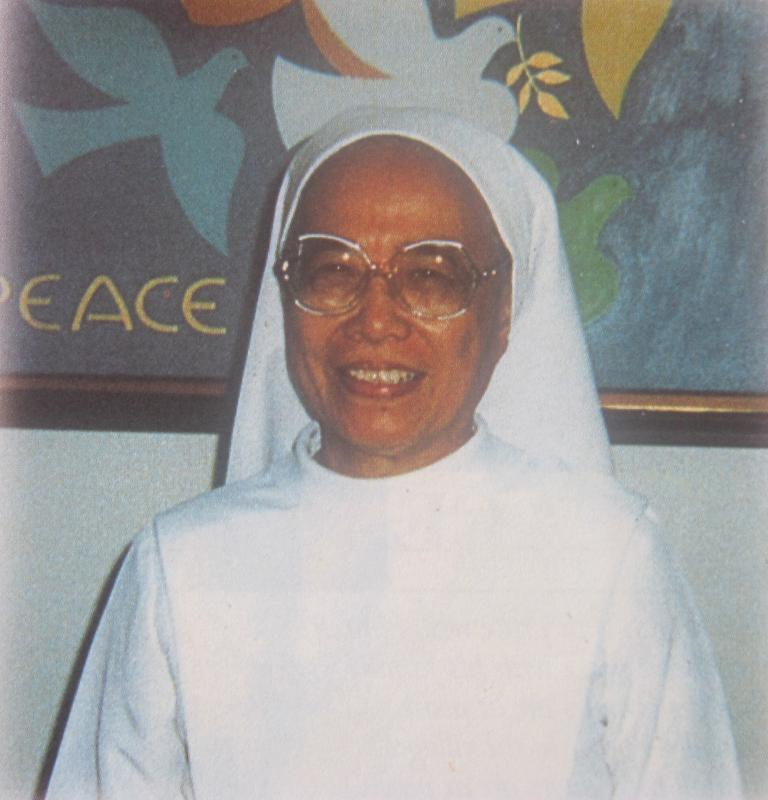
I always had the impression as a child that the whole continent of Africa was a very hot place to live in. But I was mistaken in thinking so. For in some parts of Kenya , like Nairobi, the climate is cool, especially in Karen where our convent is situated. No wonder that a variety of flowers, plants and fruit trees abound. Had I the charism of St. Francis of Assisi I could have added an epilogue to his Canticle of Nature. Because Kenya’s virgin forest and green vegetation and less polluted environment, the country is favorable for maintaining wildlife, one of God’s beautiful creations.
Modern Farms
On my first exposure to our two-off mission stations north of the equator I was impressed by the vast lands that are utilized for modern farming, especially in Kerio Valley and the Rift Valley. However, in Chesongoch and Endo (Two Benedictine Mission Stations), only a little land is cultivated by the Pokots and Marakwets who are ethnic groups. They are still in the semi-agricultural stage, waiting for modern techniques in farming.
Solar Energy
I was also surprised that these idle lands were comparatively clean and had no tall grasses in spite of the absence of lawn mowers. The most practical and economical lawn mowers are the cows, sheep and goats that roam around freely in their territory. What edifies me in these places where the Missionary Benedictine Sisters and Fathers labor is their ingenuity in coping with their basic necessities of life by using the available natural resources in the area. For instance, in the absence of electric energy the missionaries are able to harness solar energy, and through a generator, electric energy and light is provided to the church, to the living quarters of the missionaries and for other appliances. A spring of water exists in one of the nearby mountains. It provides potable water which is stored in big tanks that serve as reservoirs in times of water shortage.
Respect for Cultures
The missionaries’ work is not confined to the proclamation of the Good News but they also share their expertise in technology, farming, health, craftsmanship and in discovering the gifts in nature. Mini-churches are built by utilizing local materials such as stones an wood of good quality. They are simple and liturgical in style. The background of the altar is a Biblical painting of Old Testament figures like Abraham and Isaac. The different ethnic groups of the place are identified by their mode of dressing and ornaments on their bodies. This is true with the Pokots and Marakwets. To work with them is a big challenge, a two-way inculturation and adaptation is needed for missionaries. The difficulties encountered in these developing areas are bad roads with big pot holes, rocks of different sizes lying on the road, stony rivers and rivulets, plenty of humps and bumps that can toss people up and down.
Our Priory
Nairobi, where our young priory is, is an international city. Our new building can be identified from the outside as a nun’s monastery made of stone with tiled roof. In our church no sound system is needed because everything is audible. So in recitation or singing at Mass or at divine office many things are noticeable, especially mistakes. The altar background is a painting of the burning bush; inside the big flame is the rectangular tabernacle whose door is a broken round bread which is an image of Christ, the living bread that is broken for love of us. The altar table is made of a special white stone and is supported by another kind of stone, wherein is a carving of a Pelican feeding its young ones with its own blood-symbolic of the Sacred Heart of Jesus who is our patron.
Flexible
We use English, Latin and Swahili in the liturgy of the Mass. But, English still prevails in the singing and reciting of the liturgy of the hours. Being an international congregation we have to be flexible in many things.
Pranic Healing
I discovered, too, that in Kenya there are crystal stones of different hues that contain much energy which are useful for pranic healing. In the absence of ordinary rock salt which is commonly used in pranic healing, the crystals stones are effective substitutes. I am speaking from experience I had with some of our sisters.
Come to Africa
Africa is an eye-opener for discovering the many natural resources and gifts God had showered on the people which would help their in raising their standard of living and total development as persons. Dear Readers, where do you want to spend some of the best years of your life? Come to Africa. It is never too late to share your faith, hope and love for others in spite of risks. United in our Ora et Labora, I remain.
On The Borders Of Thailand
By Sr. Zosima R. Dalena, OSA
I encourage the people to minimize the use of plastics by using the baskets or re-usig plastic bags instead. Through this we can keep the environment clean and green. And at the same time we can also help the government solve the garbage disposal problem. While giving free reflexology to members, I also campaign for use of herbals. People here are heavy users of drugs. Prevention is being promoted also--no sale of liqour and cigarettes in the store. I am the only one working here fully convinced of the harmful effects of heavy drinking and smoking. Education is a lifelong process. But, there is great hope.
Refugees
I am one of the three Ausutinian Sisters sent here to Thailand in June 1991 at the request of the Archbishop of Thare-Nongseng. Together with my community, I live and work at Thare in the Northeast of Thailand near Laos. Most of the villagers here are Laotian and Vietnamese who fled from their countries during the Vietnam war. thus, they speak the local language called Isaan. There are differences between the Thai language I stuied in Bangkok and, that spoken here. however, even at a slow pace, I am learning how to speak Tsam; praise the Lord for the blessing of determination to go on and of perseverance to learn a new language and a dialect.
Village Co-op
We have now opened our Villagers Consumer Store. Cooperatives, as a way of life, is very relevant, most especially these days where rampant 'isms' like materialism, consumerism, and individualism, are creeping into our society. Having one store which is owned, supported and managed by the people themselves helps them to build their own future amidst fast-changing values in society.
Handicapped to Handy-capable
One day, something amazing happened! Six-handicapped youngsters from very far places came to our little co-op. They had an ambitious dream for themselves and their fellow 500 youth. they wanted to own their own store and manage it as well, So, they attended a Crash-Coop-Course for 8 days. They learned by watching and doing what the Store Staff-officers do. how I enjoyed their presence --teaching them listening, being close and learning from them too.
Raising Awareness The Paolo Freire Way
By Ariel Presbitero
The Chaos of Ignorance
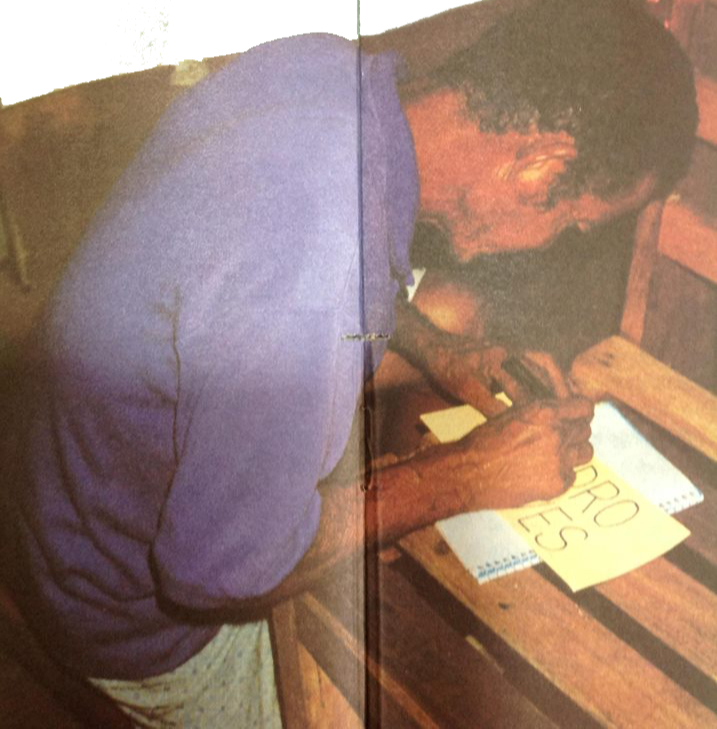
Pedro Alves, 60 years old
Pedro Alves, 60 years old, spent most of his life in the farm. Planting beans, rice, fruit trees and vegetables was his world. His bare hands knew exactly what his family needed by the use of a hoe. He never imagined that outside his farm is the advancement of human technology. Education, he knows, is as important as planting beans. But school is not available in a remote place like Belem de Sao Francisco, 485 km. from the capital Recife. How to survive becomes the biggest challenge in his life – land, seeds, water and human energy.
Pedro is a simple man, respectable and full of hope to learn something about the “world of letters.” I was surprised when he told me that he never touched a pencil nor a ballpen in his 60 years of existence. When he votes during elections he uses his thumb to printmark the ballot. He recognizes the colors of the plastic packs to buy a kilo of rice, a kilo of beans, sugar or coffee. When he goes on a bus and has to count his change, he speaks in a low voice with a bent head ashamed lest to reveal his ignorance.
Paolo Freire
Now there is hope in the new adult literacy programs. Adult literacy can become one of the best methods of human development. Paulo Freire, world famous Brazilian educator, started this concept of conscientization. He said, “To teach adults is not simply to reach them reading, writing, or counting but to awaken them the power to read critically the reality around them. They have their own valuable experience; they too can participate in the struggle to transform the world around them to undo the chains that bind them.”
I attended a seminar on the Freire method of Conscientization. We learned to start where the people are and use key words (generative terms) that people often use, examples are land, seed, water, house, struggle. Those words are also the clues to the oppression they sometimes suffer. The method is action-reflection-action.
School of Awareness
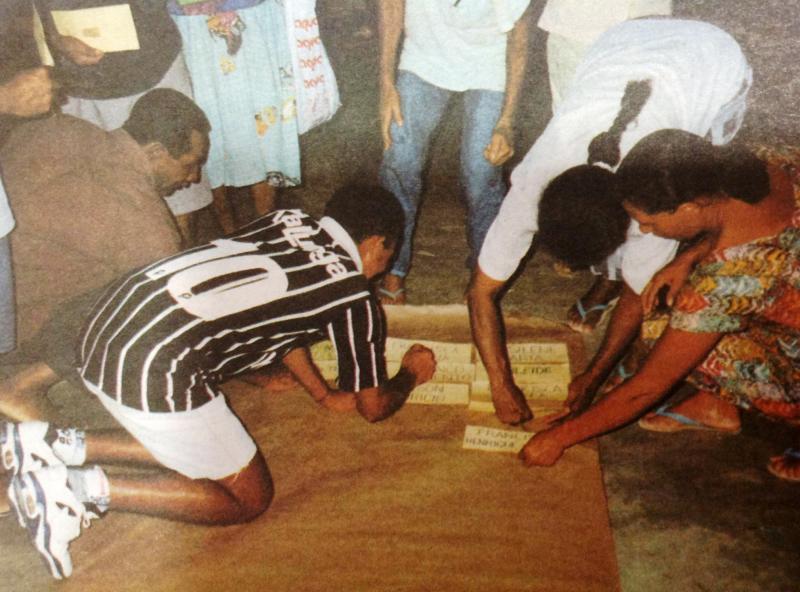
Pedro agreed to attend this new school of conscientization. Pedro started to learn to speak out his own name in the group. His colleagues repeated the sound of his name and familiarized themselves with it and wrote it out afterwards. He was hesitant to copy out his name because it’s easier to hold a farming hoe than a pencil. His fingers were stiff. But slowly the pencil started to move. To his amazement for the first time in his life he wrote his own name on the paper and was overjoyed. He showed me his work. He showed his wife and showed everybody the long awaited moment that now at last he, Pedro, can write.
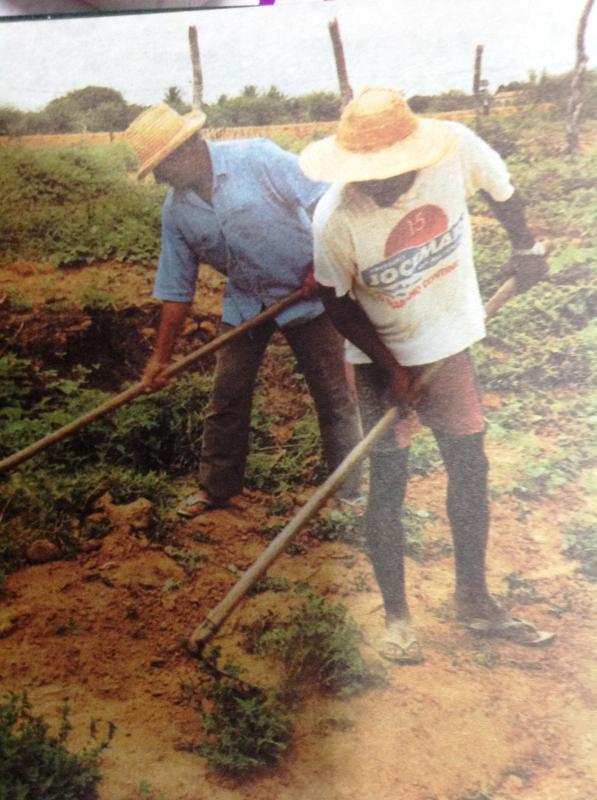
Moment of Illumination
Children writing their names for the first time is not really exciting because it is, in a way, an obligation. It is their parents who are happy. But in the case of Pedro Alves with years of human experience behind him, learning to write is a great moment. Not an obligation but a discovery that he can do more than plant beans. Though planting beans is its own form of literacy.
Reflection leads to Action
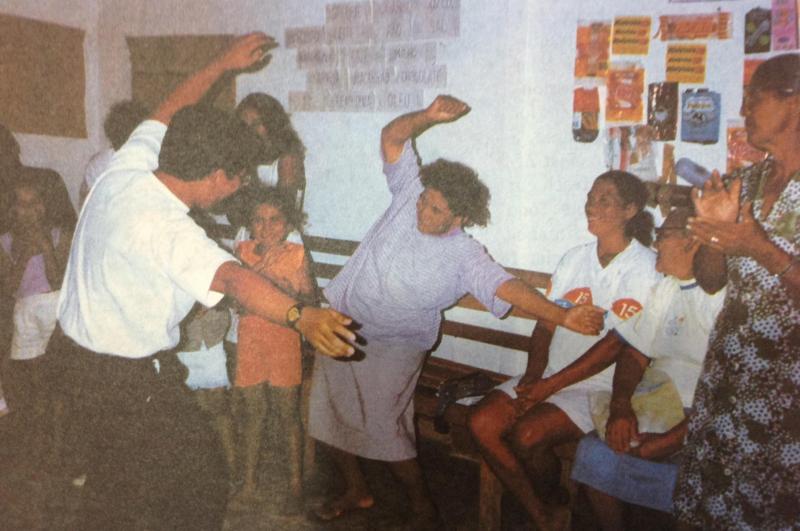
Gradually Pedro learned to write the words beans, rice, coffee, water, land and with each word went a vital discussion on the meaning of these items in his own life and the life of the community. And from there, there is only a short step to social transformation and that’s what true education is all about.
The Harvest Is Great
By Fr. Ernie Amigleo, CICM
Fr. Ernie Amigleo, though a Filipino, is a Novice Master in an Indonesian Seminary on the island of Celebes. Here he tells us about an exposure program to help the students enter into dialogue with their Muslim surroundings.
Eleven novices with knapsacks on their backs left for the city to start a new program called Dialogue of Life with Islam Families. For two weeks, novice lived with is foster parents’ who belonged to he low-income Javanese Islamic families in the city of Ujung Pandang.
Muslim Migrants
These families have migrated to Ujung Pandang to look for greener pastures. Some of them have been in the city for more than 25 years, others for just a few years. To survive they open small eateries, selling Javanese soup, noodles or bakso. But, their income from selling bakso is not enough for their basic needs, so Javanese women are forced to work also by making rounds selling local herbal drinks.
Anxiety
Our novices had mixed feelings when they where about to launch the new program. There were feelings of fear and anxiety; they are afraid of being rejected, anxious because they have no idea what will happen during those two weeks. There was also a feeling of enthusiasm and excitement – experiencing something they have never experienced before.
Into the Cauldron
But all these negative feelings were at once put aside as soon as they were received with open arms by the community. For two weeks, they lived and worked with these families who have to struggle hard in order to survive. They tried to adapt themselves to the new life. The novices slept without mattresses, were exposed to mosquitoes, slept with the whole family in one room without privacy, has a cup of tea or coffee for breakfast, and had their meals at unspecified times (sometimes past two o’clock in the afternoon and nine o’ clock in the evening). They helped prepare noodles and spices in the late morning and then helped sever customers who came to eat in the late afternoon till around midnight. Most of their time was taken up by activities. But about Javanese culture, Islam, family life and also the neighborhood.
Life is a struggle
After two weeks, they returned home full of experiences and stories. During their sharing it was evident that this experience was an eye-opener to all of them. In their reflections and sharing, some wrote, “This experience has made me aware that life is has made me aware that life is a struggle.” Life means hard work.” Others said: “I learned to appreciate Islam against which I was so prejudiced before.” It has made me realize how much I have taken for granted the many blessings I received from home and from the novitiate.” It has been a very difficult, yet challenging and enriching experience.” “I was deeply struck by my foster father who, despite his busy activities, made time to go to the mosque everyday to pray.” To sum them all up, one wrote: “It was a grace-filled experience.” Besides this, they also got some impressions of the city of Ujung Pandang –crowded, very noisy (blaring of radios and televisions), and gangster. It is dirty and there ins an obvious lack of facilities like toilets. While o the other hand, there is warmth, hospitality and religious tolerance among the people who come form different backgrounds. This new ‘experience’ was introduced into our novitiate program in response to the call of the Church to dialogue with other religions and to contextualize our CICM missionary spirituality.
The Nobles Aikewars
By Sr. Alice Lansang, ICM
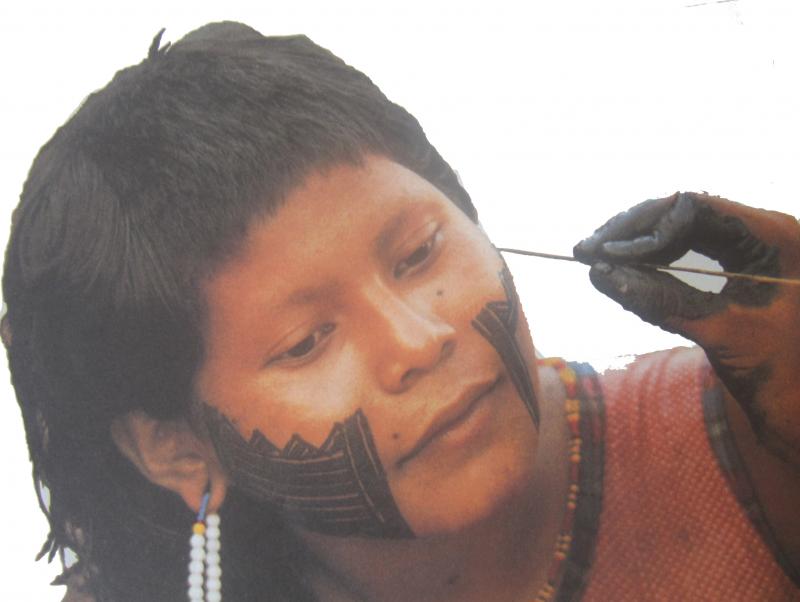
A Filipino nun, Sr. Alice Lansang, ICM, has chosen to live here with the Suruis people, a branch of the Aikewar nation. Here she tells of the humble part she played in trying to protect their land from the ‘lowland’ invaders.
Ready for battle
The news was bad: Some fifty armed white settlers were all set to invade the territory of Suruis people with whom I had bee living. These settlers would destroy the forest and force out the indigenous native people.
There was no time to lose. Immediate action was necessary if they were to be stopped from installing themselves. I notified CIMI (an organization set up by the Brazilian Bishops, a bit like NASA in the Philippines) who in turn alerted the Regional Director for Land Reform. With a Public Decree he issued a warning that invading the reservation of Indians was a crime. Then we confronted the leader of the invading settlers. As a result they gave up their plans to take over the Indian land. They alleged that news had been passed around that Indian lands were being thrown open to all. True enough, other bands begun to invade points of reservation.
They young men of the village painted themselves for war, took their rifles down and surprised one group of “invading settlers” while these were at lunch. The ability of natives to walk in silence and their instinctive knowledge of the jungle is no myth. The invaders were taken prisoner. When they got to the village, the elders, women, and children gathered around. The ‘invaders’ were painted, their hair was cut and the Suruis poured out all their pent up fear, frustration, anger at the white men’s greed. Shocked, I could only witness this ritual this ritual in silence and I marveled to see that it was a fully non-violent way of letting the invaders know that what they were doing was evil. Finally agents of FUNAI showed up with the Federal Police to bring the settlers before the law.
Who were the real enemies?
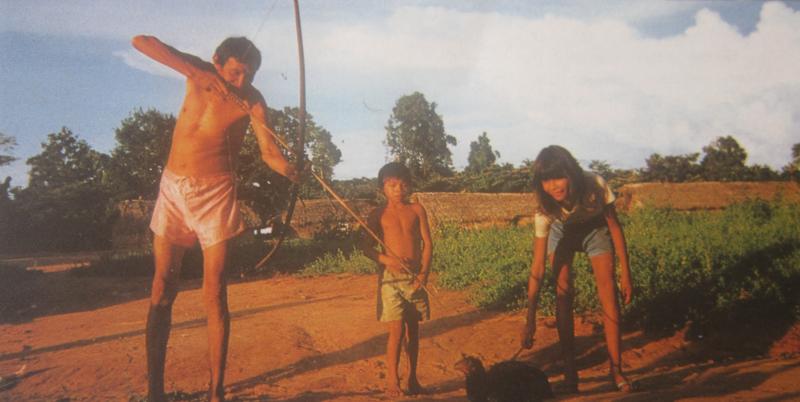
Struggle for autonomy
It is my hope to be of some help in their struggle for autonomy, the recognition of their right to be different. It is a long, slow process of making them become aware of their own values so that they might know how to discern, what to keep and what to shed off of their own culture. In my relationship with them as sister to all, I hope they may come to realize that although as people we grow as different branches with regard to color, creed and culture, nevertheless, we are all rooted in the one God who is the Father of us all. I hope that by my way of being one with them they may discover what my faith in Christ means – life in full for all.
The Future
‘Not a single Indian will be left alive by 1980’ – Brazilian anthropologist, 1970. It is necessary to finish with Indians by the year 2000’ – Brazilian politician, 1994.
Since the start of colonialism, the invaders have predicted the disappearance of the tribes they found ‘in their way’ and, of course, thousands have been wiped of the face of the earth – gone forever. But many have survived, showing remarkable tenacity in the face of overwhelming odds; often adapting I varying degrees; sometimes resisting major change; sometimes retreating into remote regions.
Although tribal peoples have always tried to defend themselves against this invasion many of the tools they use now are relatively new: indigenous organizations publish their own newspapers, broadcast their own radio programmers and even, in some countries, successfully put forward candidates for political office. The techniques used by tribal people will come to evolve.
Travails Of Being A Woman
By Auring Luceno
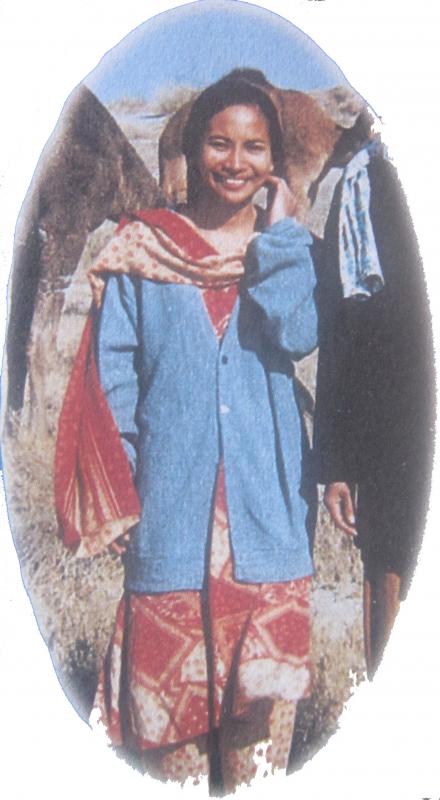
Wherever I have new experiences here in Pakistan I always think of home, and that gives me a lot of strength and encouragement. At the same time, the people in the barrios have become a source of life for me and the visits to the families are the things I always look forward to. As ever, I thank God for my own family at home in the Philippines – from whom I first came to know what trusting and real loving means: the same love and trust brought me here and keeps me going.
Discernment
We’re back in Lahore after a language course in Muree. The rest of the month was spent on exposures to the different missionary programs, places of interest here in Lahore, as well as in the two parishes. This was to help us in our discernment as to which parish we would go to. I found it a bit difficult to decide, especially when I came to love both places, found the need of workers in both places and was seeing lots of things I’d love to do in both parishes. I’m beginning to feel my way with the people in Shadbagh. I have made a lot of friends and I am learning a lot about the culture.
A Filipino Pakistani
Often I’m mistaken for a Pakistani and enjoy chatting with my limited Punjabi. One time when the late Pilar Tilos and I waited for a ride I stood at the roadside while she negotiated with a driver, and we had the biggest laugh when the driver called and asked for my assistance to translate what Pilar was saying, thinking I was a Pakistani.
Being Small Makes a Difference
Being small I can easily pass as a Pakistani girl, as women here can be really big in build. This gives me a little freedom to move around, which is difficult for most women to do here. I’ve tried moving and taking the public transportation on my own, going to the shops alone, and going to choir practice every Saturday in the school parish alone.
Learning is an Act of Humanity
I’m trying to learn the Punjabi and Urdu hymns; and I’ve experienced humility not being able to read the script as fast as necessary – seeing the surprise in the children’s faces realizing I couldn’t even read the way hey do, and their sympathy and eagerness to help me gives me a lot of encouragement.
Tears of Joy
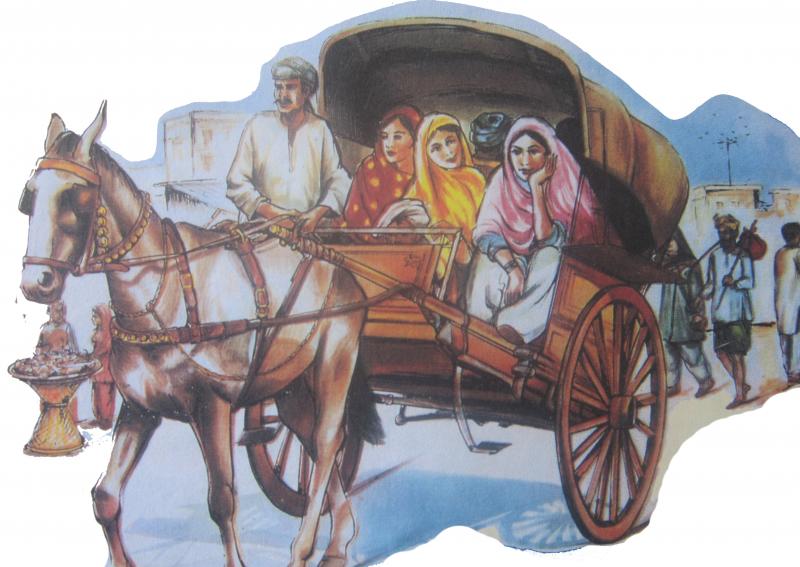
Deep Option
Pakistanis is very different. Being a woman, single and a foreigner my pose some difficulties, but I’m seeing these with deep optimism after experiencing the support and acceptance among the Columbans and from the other missionaries in Pakistan.
We Come To Serve
By Sr. Lawrence Consulta, PDDM
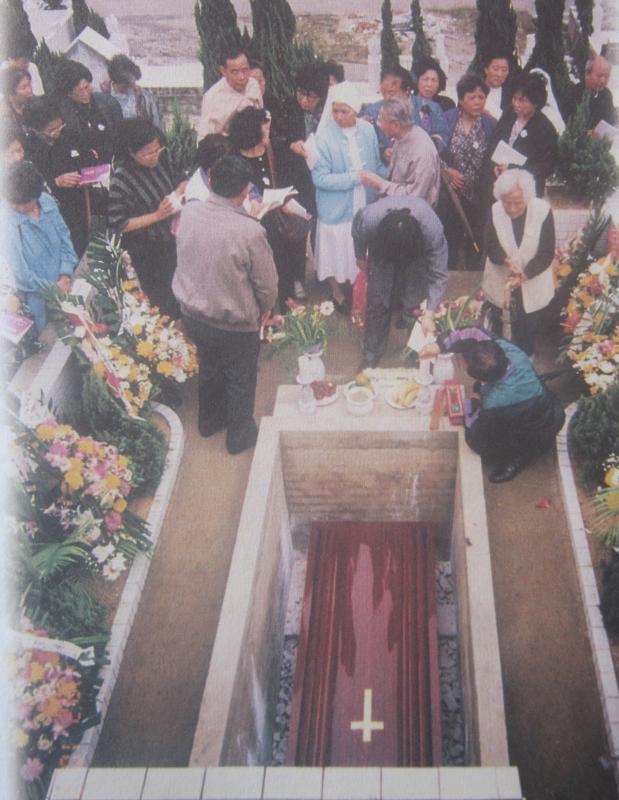
The church of Taiwan is dominated by an aging clergy. Due to the fact that Catholics are a minority and the society is becoming more and more industrialized, vocations are scarce. Therefore, a young priests are few. Our response to this situation is Eucharistic, Priestly and Liturgical Apostolic. Particularly in the Archdiocese of Taipei at St. Joseph’s House, we assist priests in the exercise of their priestly ministry, in their sickness and old age, and even at their death bed. In Taiwan, we are composed of eight members: one Chinese and seven Filipinas.
At The Service of the Liturgy
In Taipei, we have a Liturgical Apostolate Center which facilities the distribution of our productions, various art forms linked to the liturgy: vessels, vestments, church furnishings. We do liturgical catechesis through this means. In the parish we also give liturgical animation and give catechism as a preparation for the reception of the sacraments.
Pastoral Care for Migrant Workers
The upsurge of migrant workers in Taiwan prompted us also to contribute our share to their pastoral care. In two parishes, Our lady of China and Corpus Christi we respond to their needs with an English Sunday liturgy and some worthwhile activities. We also give catechism and a little counseling.
It is fact that the need of the Church is so vast and what we can give is only like a ‘drop in the ocean’ and ‘a grain of sand on the sea shore’. However, we do what can to reach out to as many as possible through our prayer and activity.
May Jesus Master, the ‘reason for our being disciples”, help our effort to make Him known, loved and served in this land of the Chinese people.
Why Not?
By Bella Sarenas
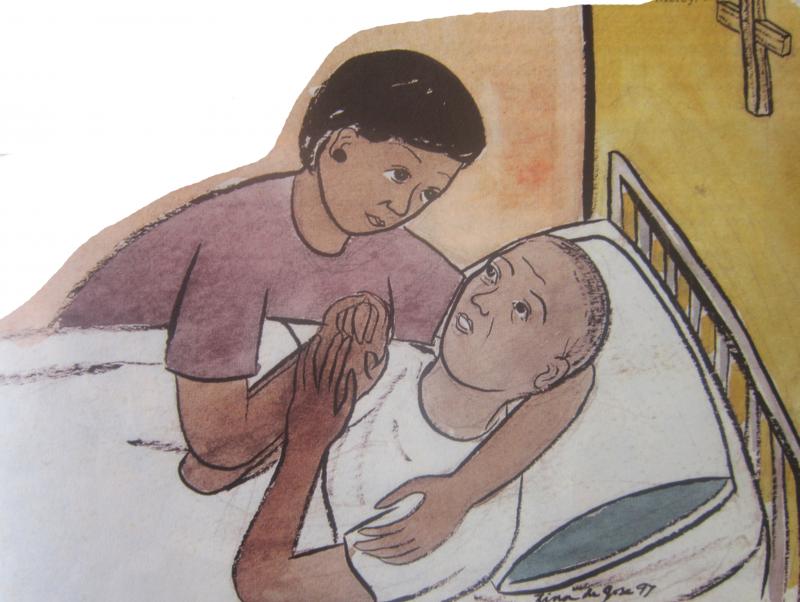 Statistics show that at level 3B of lung cancer, a patient has from three to six moths to live. Yours is level four,” the doctor told Berting. My husband and I just held on to each other that morning of August 8, 1995 in Davao where we lived. We would need each other’s strength from then on.
Statistics show that at level 3B of lung cancer, a patient has from three to six moths to live. Yours is level four,” the doctor told Berting. My husband and I just held on to each other that morning of August 8, 1995 in Davao where we lived. We would need each other’s strength from then on.
Berting had to be confined in the hospital for more tests. While packing for the hospital stay. Berting and I avoided looking at each other, afraid of seeing the pain our eyes could not hide. When our eyes did meet, we clung to each other and cried together. “Lets us pray,” I said, stiffling a sob.
Bering closed his eyes and started to pray. Then, in the middle of his prayer, he cried out, “Why Lord?” Yet, almost in the same breath, Berting answered his own question with another question: “Why not?”
He had to go for chemotherapy three times in a span of one month. Each time, we both prayed in tongues, our spirit praying to the spirit of God. We prayed that Berting could not suffer the horrible side effects of chemotherapy.
We prayed for his doctors and nurses. We even prayed over his medicines before he took them, like saying grace before meal. And Bering did not suffer any of the side effects!
After the treatment session, the tumor in Berting’s brain had been reduced to one-third of its size. There were no signs of cancer cells in his lungs. And his doctor assured him that the treatment he received would continue to work over a period of time, his radiologist told me his chance to live was eight months.
Everyday upon waking up. Berting and I thanked Jesus for our borrowed lives. We consecrated everything, everyone and all merits to the Immaculate Heart of Mary and the Sacred Heart of Jesus. The more we prayed, the more we appreciated that our time, our place, our relationship were God’s gifts. We depended less and less on ourselves and relied on Jesus as our doctor, friend, companion, consoler, provider and life sustainer.
Known for his kindness, Berting became ever more considerate and loving. Holding and kissing my hands, he now and then, without effort, told me tidbits if his last will.
“No videos, no flowers, no white or black dresses during my funeral,” he said. “No sad song either. Remember me as the once healthy man that I was, should you receive donations during my wake, give the money to the charity. Mourning is in the heart. You need not visit my tomb, nor bring flowers nor candles. Just pray for me because that’s what I need.”
Once, Berting went through his wardrobe and told our daughter Mayen, “I want to wear a barong when I die.” Mayen humored him and said, “You have many suits. Wear one of them. You look better in coat and tie.”
“Nah”, he said, “they're too hot.” And we all had a good laugh.
Earlier, on March 15, 1995, Berting’s father had died of cancer. Berting was so saddened that there would be two deaths in the family within the year. Yet, we hung on to dear hope, strengthened by God’s word: We are afflicted in every way, but not constrained, perflexed but not driven to despair, persecuted but not abandoned, struck down, but not destroyed. (2 Corinthians 4:8-9) Undaunted by Berting’s illness, our family went for a holiday in Cebu and Bohol.
Berting seemed to grow stronger and healthier. But when we went back home, he felt sick again. We consulted his doctor and by the look in his face, we knew the cancer was back. The doctor said the cancer spread to other parts of his brain, it was back in his lung and had even invaded his lymph nodes and liver.
We prayed and fasted. Seeing him alive each morning was hope enough for us.
Soon Berting began to suffer memory lapses. He was sharp and talkative one day, then forgetful and quiet the next. One night, when he could not sleep, I sang to him his favorite praise song. By this time, his speech had begun to slur yet he clearly sang with me the lyrics of the song. We both cried.
One time, when I was at my lowest point, I prayed during an evening Mass for the Lord to comfort me, I said, “Jesus, I need you. I feel so useless and empty.” When I got home, I busied myself preparing dinner for two priests whom earlier a couple friend invited to visit Berting. When the priests arrived, the dining table was already set for the dinner. But one of the priests asked me to clear the table. “I’m going to say Mass,” he announced.
“We didn’t expect him to say Mass,” our friends told us. I cleared the table, and the priest promptly spread his Mass kit on the table. As I sat there, hearing Mass with my family and friends, including the househelps, I suddenly remembered my prayer to the Lord to come and comfort me. I realized then that He had come, in the person of this priest, celebrating the Eucharist right in our home!
Yes. God made us feel His loving care through the many people who prayed for Berting. A group of original settlers in Bukidnon and Davao, members of various Catholic groups –they all wrapped Berting with their prayers. I never knew how loved he was!
Soon, Berting turned for the worse, one day he had difficulty breathing and his pulmonologist said he had to do a tracheotomy, make a hole in Berting’s lungs to remove liquid that was making it difficult for my husband to breathe.
On both occasions, I did not know whether I should allow the doctors to go through the procedure. Berting gave definite instructions never to open him up. But if the procedures were not done, he would die in the next 24 hours.
However, I knew what to do. I prayed and asked my family and Community to pray for me. Then I took a step in faith, deciding against the procedures, and, contrary to what the doctors feared, Berting’s breathing normalized!
Cancer is a cruel disease that drains you not only emotionally but also financially. We were spending an average of P6, 000 a day on Berting’s medicine alone. Soon, our money just ran out. But on the day that it did, my mother-in-law just happened to visit. She told me someone who owned her money just paid his debts. And then, even before I could tell her my predicament, she handed me P 6, 000 --just what I needed for that day.
At another time, when I needed a huge amount of money, a friend lent me the cash needed – without collateral!
In addition to our daily Masses, Berting and I started to pray at the Divine Mercy Chaplet barely weeks after the discovery of his cancer. Since he was a sound sleeper, Berting prayed that God would wake him up at 3:00 a.m., the prescribed time of praying the chaplet. God did, all the time! So we prayed the chaplet daily at 3 a.m. and also 3 p.m.. After each prayer, we annointed each other with holy oil. This soothed our frayed nerves, enabling is to cope with our ordeal.
Two months before he began to suffer memory lapses and slurred speech, Berting, who was not comfortable with confession, confessed twice a month. On the third week of our stay in the hospital, I begged Jesus to teach me to pray, as I did not know how else I should pray for Berting. I wanted him to stay alive but it was painful watching him suffer. Yet, I knew it would be more painful to let go!
After I asked the Lord to teach me to pray, the head of the Divine Mercy in Davao visited us and taught me the ‘soaking’ prayer which meant reciting the chaplet seven times for seven days. “On the seventh day, Jesus will let you know His answer to your predicament,” the leader told me, “He never fails.”
I did as the leader told me. On the seventh day of praying the chaplet, I woke up singing a prayer in my heart. I told the Lord, “Today is a special day, Lord, I just know it.”
That day, Berting looked very weak. But I thought he always pulled through in the past, so I did not bother much about his condition that day. I even thought that it would be our miracle day. Berting would be healed and we would all go home.
At 3 p.m., we prayed the ‘soaking’ prayer of the Divine Mercy then went on praying --non stop -- for three hours.
We sang the Our Father, Hail Mary, Anima Christi, Blood of Jesus, and most Berting’s favorite praise songs. Despite his labored breathing Berting drew his last breath gently and quietly.
This Sunday Berting died was the seventh day since we started the chaplet of the Divine Mercy.
Like most cancer victims, he asked why. But unlike many of them, he promptly added...Why not?
